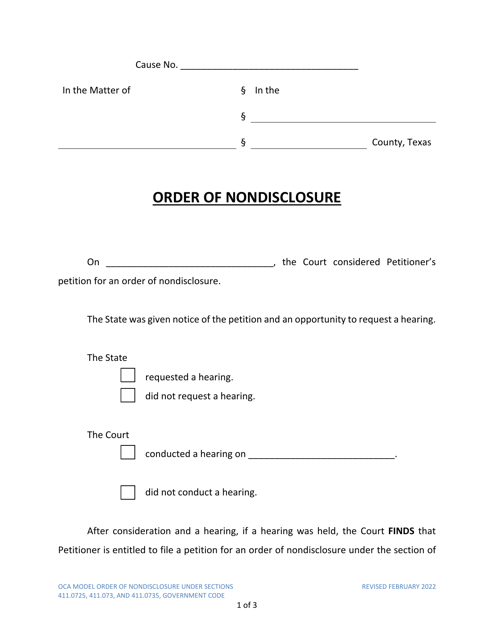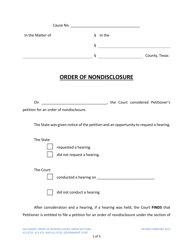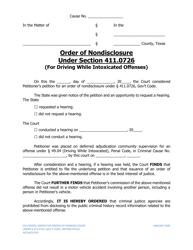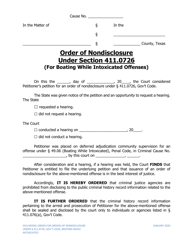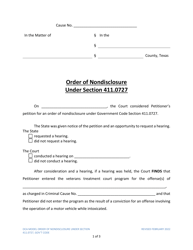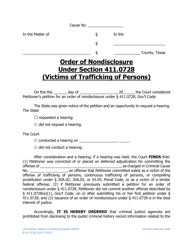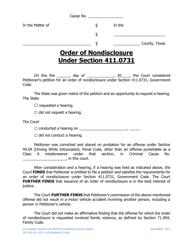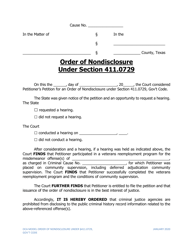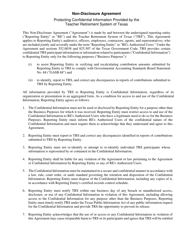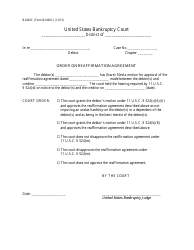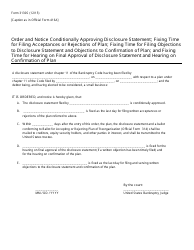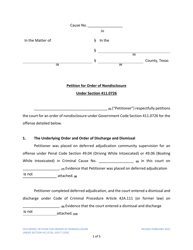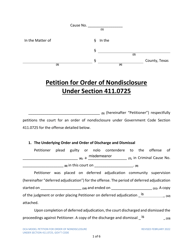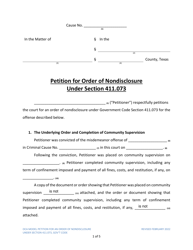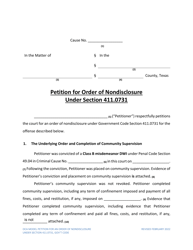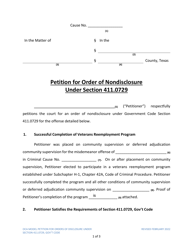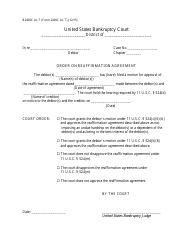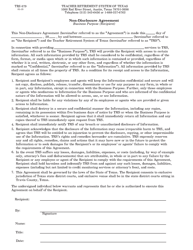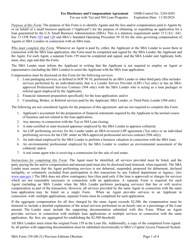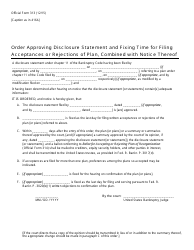Order of Nondisclosure - Texas
Order of Nondisclosure is a legal document that was released by the Texas Judicial Branch - a government authority operating within Texas.
FAQ
Q: What is an Order of Nondisclosure?A: An Order of Nondisclosure is a court order that allows certain criminal records to be sealed from public view.
Q: Who is eligible for an Order of Nondisclosure in Texas?A: Eligibility for an Order of Nondisclosure depends on the type and outcome of the criminal offense. Not all offenses are eligible.
Q: What offenses are eligible for an Order of Nondisclosure in Texas?A: Certain misdemeanors, non-violent felonies, and some low-level crimes may be eligible for an Order of Nondisclosure.
Q: How does an Order of Nondisclosure work?A: Once granted, an Order of Nondisclosure restricts public access to the sealed criminal records. However, certain government agencies and entities may still have access.
Q: Can an Order of Nondisclosure be reversed?A: In some cases, an Order of Nondisclosure can be revoked if the individual commits another offense that disqualifies them from the original order.
Q: How do I apply for an Order of Nondisclosure in Texas?A: To apply for an Order of Nondisclosure, you must file a petition in the court where the conviction occurred, following the proper procedures and meeting the eligibility criteria.
Q: Are there any exceptions to an Order of Nondisclosure?A: Certain offenses, such as those involving family violence, sexual assault, or crimes against children, are generally not eligible for an Order of Nondisclosure.
Q: Does an Order of Nondisclosure expunge the records?A: No, an Order of Nondisclosure does not expunge the records. It only limits public access to the sealed records, but they are still retained by government agencies.
Q: How long does it take to get an Order of Nondisclosure approved?A: The timeline for approval of an Order of Nondisclosure can vary depending on the court and the complexity of the case, but it generally takes several months.
Q: Can an Order of Nondisclosure be used for employment purposes?A: While an Order of Nondisclosure limits public access to criminal records, employers may still have the ability to access them through certain channels, such as fingerprint-based background checks.
